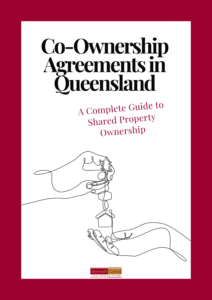The residential property-buying process can seem overwhelming, but with some insider knowledge, you’ll be better equipped to handle the more complex parts. One such part is the period between signing the contract and the settlement. This phase can be a bit unclear: although the property isn’t officially yours yet, you’ve already committed to purchasing it. Since the settlement period can last several months, it’s a great opportunity to start preparing for your move.
Before you can fully enjoy your new home, there are plenty of tasks to complete, from finalising your finance to arranging insurance. Here are 7 essential steps every buyer should take after signing the contract:
Whether it’s securing your home loan or setting up utilities ahead of time, there are important things to take care of once the contract is signed.
Here are seven key tasks to handle, according to a buyer’s agent:
1. Pay the Deposit
Your first task is to pay the deposit you’ve worked so hard to save. This is usually a percentage of the purchase price and is paid when the contract is signed. The deposit is held by the conveyancer or real estate agent in a trust account until the settlement date, which is when the remaining amount is due and the property becomes officially yours. Check the deposit amount in your contract to ensure it aligns with what was agreed upon during negotiations and meets your lender’s conditions.
2. Finalise Financing
If you received pre-approval for your home loan, now is the time to make it official. Notify your lender that you’ve signed the contract and provide a copy so they can review details like the purchase price and settlement date. Be thorough in reviewing the associated costs, and your lender may request additional documentation such as proof of income, bank statements, and expenses. They will also perform a property valuation to ensure the home’s price is in line with its market value. If your loan is not approved, some contracts may allow you to back out, possibly with a refund of your deposit.
3. Prepare for More Inspections
While a single viewing might seem sufficient, there are additional inspections you should conduct after signing the contract. A building and pest inspection is important, and your contract may allow this inspection to take place afterward, giving you a chance to negotiate repairs, adjust the price, or even cancel the contract if significant issues arise. You should also schedule a pre-settlement inspection to ensure any repairs have been made and the property is in the agreed-upon condition. Many buyers overlook this step, but it’s essential for confirming the property is as it was when you first paid the deposit.
4. Set Up Your Utilities
Moving into a new home is the perfect time to reassess your utilities. Many people switch providers—31% of realestate.com.au users change their internet provider, and 36% switch electricity providers before moving in. To avoid any disruptions, it’s recommended to have your utilities connected before settlement. This ensures everything is ready to go when you move in.
5. Arrange Insurance
Property insurance can be crucial during this period to protect against unexpected damage. Don’t assume you can rely on the seller’s insurance. The property is likely at your risk shortly after the contract is signed, even though you don’t own it or live there. Be sure to check with your conveyancer to know when liability shifts and make sure your insurance is in place. Your lender, if you have one, will also require this so be sure to get it ahead of time to avoid slowing your lender down and risking settlement delays (or breaches of the contract).
6. Plan Your Move
Moving can be stressful, so it’s wise to get organised early. Choose a moving date that works for you and gives you enough time to prepare. Consider hiring a professional removalist or renting a truck if you’re handling the move yourself. Declutter your current home to make the process smoother. Don’t forget to measure your new home to make sure your furniture fits. A checklist can be incredibly helpful for staying on track with packing, transport, and timelines.
7. Expect the Unexpected
Despite careful planning, you’re likely to encounter some delays or issues along the way—whether it’s a repair, a finance problem, or a settlement delay. Being prepared for these obstacles can help you stay calm and minimise stress. A buffer in your budget to cover unforeseen costs can be useful, and staying organised and communicative with all parties involved can help ensure a smoother path to settlement.
By staying proactive, you can tackle any surprises that come your way and enjoy a less stressful property-buying experience. The settlement period is a crucial time for residential property buyers—don’t leave anything to chance. Our experienced property lawyers can help you navigate the legal and financial steps to ensure a smooth transition. Contact Bennett Carroll Solicitors today for expert guidance and peace of mind!
Buying or selling property in Queensland? Bennett Carroll Solicitors offers expert conveyancing services to guide you through each step, ensuring a smooth, stress-free transaction. With offices in Brisbane, Gold Coast, Sunshine Coast & Ipswich, we bring years of experience, clear communication, and a dedicated team to your property journey.
Contact us for a quote.
Other relevant links:









